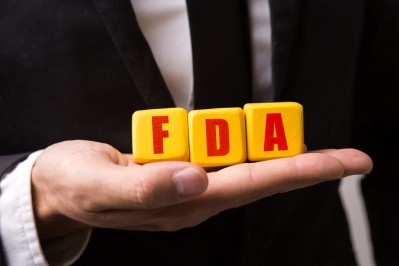DeLauro/Durbin move to split up FDA has earlier precedents, expert says

John Venardos, who has held many positions in the dietary supplement industry including heading up regulatory affairs at Herbalife and as vice president at bodybuilding.com, said he’d proposed such a move four years ago in a public presentation on how the Dietary Supplement Health and Education Act (DSHEA) might be updated.
The new push for a separate food agency was brought to the fore by a bill introduced this week by US Rep Rosa DeLauro (D-CT) and Sen Dick Durbin (D-IL). Venardos said Durbin has put forward similar proposals in the past, too.
Rep DeLauro, chair of the House Appropriations Committee, said a new agency with a single focus would improve food safety in the United States, in particular because the organization could be headed by a subject matter expert. The US Food and Drug Administration also has responsibility over pharmaceutical products and medical devices, and for the past 30 years has usually been led by MDs (many FDA Commissioners have also held additional academic credentials).
Proposal to create ag/food/supplements agency
“I do think food ingredients and dietary supplements have been a stepchild within the regulatory priorities of FDA,” Venardos told NutraIngredients-USA.
“The Agency has traditionally been led by people out of the medical disciplines. They only get one or two courses in nutrition as part of their training,” he said.
The DeLauro/Durbin proposal would create a new agency called the Food Safety Administration. Venardos proposes a different approach, by moving the Center for Food Safety & Applied Nutrition (CFSAN) plus the Office of Dietary Supplement Programs (ODSP) out of FDA into an enhanced US Department of Agriculture & Nutrition (USDAN) having jurisdiction over all US food and nutrition policy, regulations and enforcement.
Insufficient resources led to logjams
Venardos said the momentum has waned at FDA, which could in part be attributed to a severe lack of resources. The industry has grown from perhaps $5 billion in total revenue in the yearly years after DSHEA was instituted in 1994 to one that is approaching $60 billion today.
But FDA resources devoted to regulating this thriving market have not kept pace. ODSP has fewer than 30 full time employees to police a market of more than 2,000 firms and 80,000 products. Venardos said it has become increasingly clear that OSDP is falling behind.
“It’s an agency that seems to be adrift,” Venardos said.
He cited the protracted gestation of the New Dietary Ingredients Draft Guidance as an example. The first NDI draft was released more than 10 years ago, with a subsequent version following several years after that. After a significant amount of back and forth with industry, FDA has suggested that a third version could be released in stages to take into account the many concerns stakeholders have had with the existing guidance. But no new guidances have been released.
Other important issues have hung fire, too, Venardos said.
“They haven’t made progress on CBD. They haven’t been able to go after kratom,” he said.
Creating greater accountability
Venardos said a new agency could not only compete more effectively for resources, it could also be structured to be more accountable. As matters stand, impasses like the NDI Draft Guidance can persist seemingly without consequences.
“If you or I were in the private sector and it took us more than a decade to accomplish some critical task we’d be out on our ears,” he said.
“People need to have their performance tied to key performance indicators,” Venardos added.
No longer the gold standard
The issues that have accumulated in the past decade have muddied the waters to the extent that Venardos said FDA’s reputation has been tarnished.
“I have worked with regulators around the world particularly when I was with Herbalife for 18 years. This regulatory scheme would not be considered the gold standard by anyone in Western Europe, for example,” he said.









